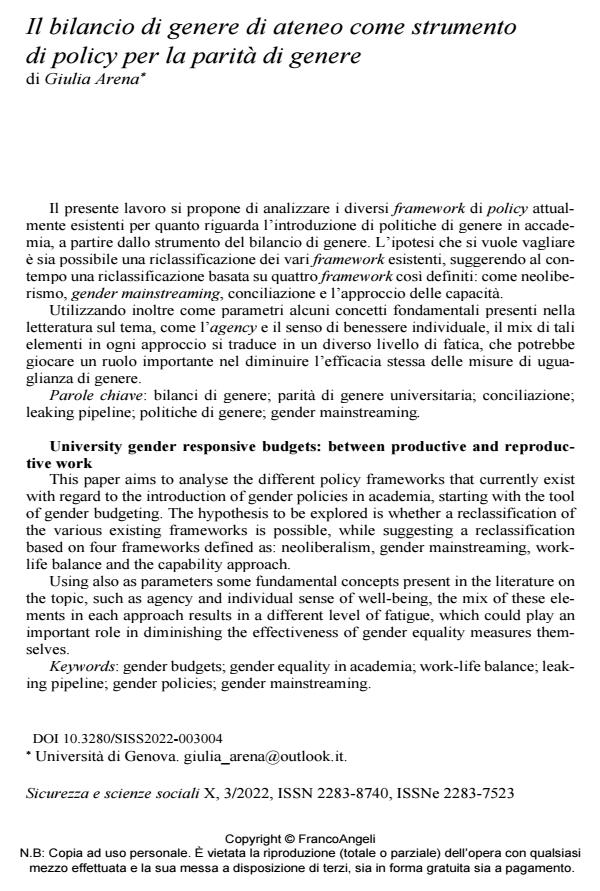University gender responsive budgets: between productive and reproductive work
Journal title SICUREZZA E SCIENZE SOCIALI
Author/s Giulia Arena
Publishing Year 2022 Issue 2022/3
Language Italian Pages 11 P. 51-61 File size 184 KB
DOI 10.3280/SISS2022-003004
DOI is like a bar code for intellectual property: to have more infomation
click here
Below, you can see the article first page
If you want to buy this article in PDF format, you can do it, following the instructions to buy download credits

FrancoAngeli is member of Publishers International Linking Association, Inc (PILA), a not-for-profit association which run the CrossRef service enabling links to and from online scholarly content.
This paper aims to analyse the different policy frameworks that currently exist with regard to the introduction of gender policies in academia, starting with the tool of gender budgeting. The hypothesis to be explored is whether a reclassification of the various existing frameworks is possible, while suggesting a reclassification based on four frameworks defined as: neoliberalism, gender mainstreaming, work-life balance and the capability approach. Using also as parameters some fundamental concepts present in the literature on the topic, such as agency and individual sense of well-being, the mix of these elements in each approach results in a different level of fatigue, which could play an important role in diminishing the effectiveness of gender equality measures themselves.
Keywords: gender budgets; gender equality in academia; work-life balance; leaking pipeline; gender policies; gender mainstreaming.
- Shaping Tomorrow Daniela Cicchini, Maria Luisa Cotana, Rubina Michela Galeotti, pp.209 (ISBN:978-3-031-78998-4)
- Los presupuestos con perspectiva de género en las administraciones públicas italianas. Límites y desafíos jurídicos Clara Filiberto, in Revista Jurídica de Investigación e Innovación Educativa (REJIE Nueva Época) /2025 pp.155
DOI: 10.24310/rejie.33.2025.22314
Giulia Arena, Il bilancio di genere di ateneo come strumento di policy per la parità di genere in "SICUREZZA E SCIENZE SOCIALI" 3/2022, pp 51-61, DOI: 10.3280/SISS2022-003004